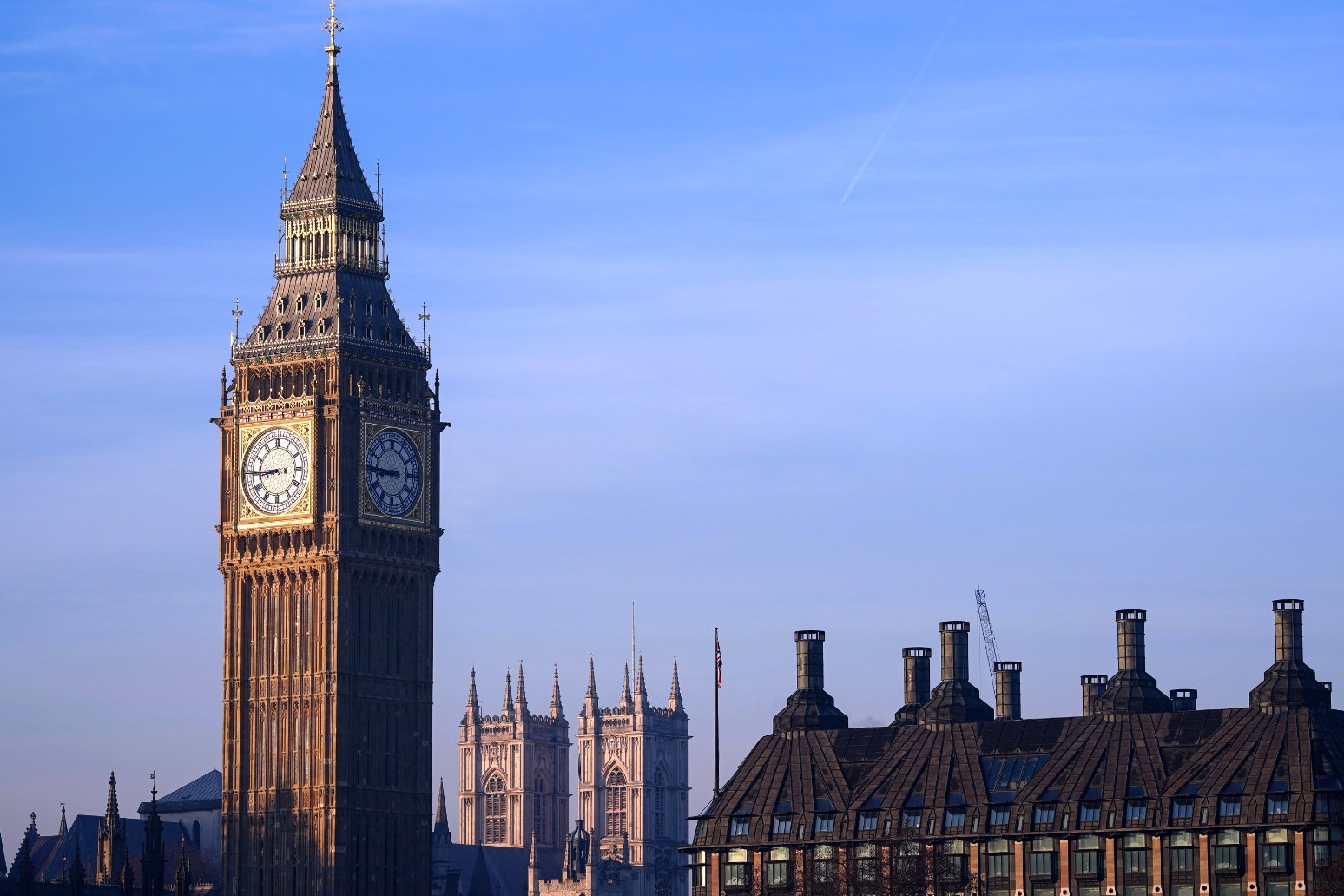Listeners:
Top listeners:
-
 play_arrow
play_arrow
Rother Radio (128K) Love Local, Love Music!
-
 play_arrow
play_arrow
Rother Radio (64K) Love Local, Love Music!
-
 play_arrow
play_arrow
Rother Radio (Doncaster) (64K) Love Local, Love Music!
-
 play_arrow
play_arrow
Rother Radio (Doncaster) (128K) Love Local, Love Music!
-
 play_arrow
play_arrow
Rother Radio Xmas Love Local, Love Music!
-
 play_arrow
play_arrow
Rother Radio – Special Announcement Love Local, Love Music!


MPs have voted in favour of measures to decriminalise women terminating their own pregnancies.
MPs have voted in favour of measures to decriminalise women terminating their own pregnancies.
The Commons voted 379 to 137, majority 242, to back Labour MP Tonia Antoniazzi’s amendment to the Crime and Policing Bill.
The Gower MP said it will remove the threat of “investigation, arrest, prosecution or imprisonment” of any woman who acts in relation to her own pregnancy.
Ms Antoniazzi told MPs she had been moved to advocate for a change in the law having seen women investigated by police over suspected illegal abortions.
During the Bill’s report stage, Ms Antoniazzi assured her colleagues the current 24-week limit would remain, abortions would still require the approval and signatures of two doctors, and that healthcare professionals “acting outside the law and abusive partners using violence or poisoning to end a pregnancy would still be criminalised, as they are now”.
She also told MPs: “This is the right change at the right time. I implore colleagues who want to protect women and girls and abortion services to vote for new clause one. Let’s ensure that not a single desperate woman ever again is subject to traumatic, criminal investigation at the worst moments in their lives.”
On issues such as abortion, MPs usually have free votes, meaning they take their own view rather than deciding along party lines.
Justice minister Alex Davies-Jones indicated the Government is neutral on decriminalisation and that it is an issue for Parliament to decide upon.
But winding up for the Government after Tuesday’s debate, Ms Davies-Jones suggested ministers would work to ensure the law change was workable if MPs voted for it.
She told the Commons: “If it is the will of Parliament that the law should change, the Government in fulfilling its duty to ensure that the legislation is legally robust and workable will work closely with my honourable friends to ensure that their amendments accurately reflect their intentions and the will of Parliament, and are coherent with the statute book.”
Though the Government took a neutral stance on the vote, several high-profile Cabinet ministers were among the MPs who backed the amendment.
They included Energy Secretary Ed Miliband, Chancellor of the Duchy of Lancaster Pat McFadden, Work and Pensions Secretary Liz Kendall, Defence Secretary John Healey, Transport Secretary Heidi Alexander, Environment Secretary Steve Reed, Northern Ireland Secretary Hilary Benn, Scotland Secretary Ian Murray, Wales Secretary Jo Stevens and Commons Leader Lucy Powell.
Kemi Badenoch and many members of the Conservative frontbench voted against it, but shadow education secretary Laura Trott voted in favour.
Abortion in England and Wales currently remains a criminal offence but is legal with an authorised provider up to 24 weeks, with very limited circumstances allowing one after this time, such as when the mother’s life is at risk or the child would be born with a severe disability.
It is also legal to take prescribed medication at home if a woman is less than 10 weeks pregnant.
Efforts to change the law to protect women from prosecution follow repeated calls to repeal sections of the 19th century law the 1861 Offences Against the Person Act, after abortion was decriminalised in Northern Ireland in 2019.
The changes being debated this week would not cover Scotland, where a group is currently undertaking work to review the law as it stands north of the border.
The measures to decriminalise abortion still need to complete their legislative journey through both the Commons and the Lords before they can become law.
The step was welcomed by the British Pregnancy Advisory Service (BPAS).
Heidi Stewart, chief executive of the charity, said: “This is a landmark moment for women’s rights in this country and the most significant change to our abortion law since the 1967 Abortion Act was passed.
“There will be no more women investigated after enduring a miscarriage, no more women dragged from their hospital beds to the back of a police van, no more women separated from their children because of our archaic abortion law.”
The Society for the Protection of Unborn Children (SPUC) said it was “horrified” by the vote.
Alithea Williams, of SPUC, said: “If this clause becomes law, a woman who aborts her baby at any point in pregnancy, even moments before birth, would not be committing a criminal offence.”
She added: “Our already liberal abortion law allows an estimated 300,000 babies a year to be killed. Now, even the very limited protection afforded by the law is being stripped away.”
Stella Creasy, the Labour MP for Walthamstow, had proposed an amendment with a more strident means of decriminalising abortion, but repealing laws from the 19th century and the inter-war period.
She claimed on social media site X following the Commons debate that “what passed knocked out our chance to decriminalise abortion”, as her amendment fell as a result.
Ms Antoniazzi, who tabled the rival amendment, said her fellow Labour MP had faced “unforgivable abuse” outside Parliament on Tuesday from anti-abortion campaigners.
A third amendment from Tory MP Dr Caroline Johnson, requiring those having an abortion to have an in-person consultation in a bid to strengthen protections, was rejected by the Commons.
Published: by Radio NewsHub
Written by: Radio News Hub
Similar posts
Now Playing
Now playing: -
On Air Now

Through The Night
The Best Variety of Hits Through the Night!
Staying up late or can't sleep? Rother Radio plays the best variety of music to see you through the night!
closeSponsored
Weather
Upcoming Local Event
Latest from Facebook
Search Rother Radio
Contact Us
- https://www.rotherradio.co.uk
- 01709 257 175
- studio@rotherradio.co.uk
About Us
Rother Radio – Love Local, Love Music! → Discover more
Our Partners
Rother Radio is owned by Rotherham Broadcasting CIC







